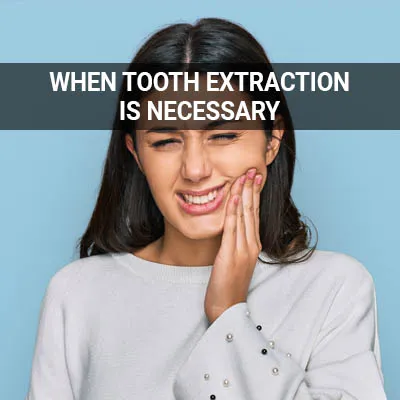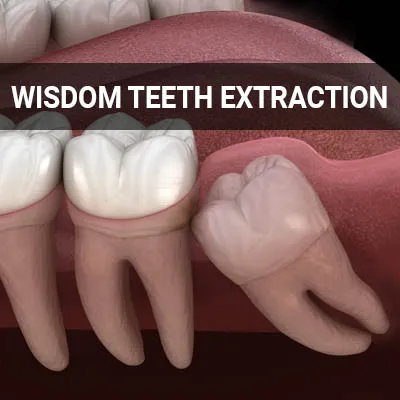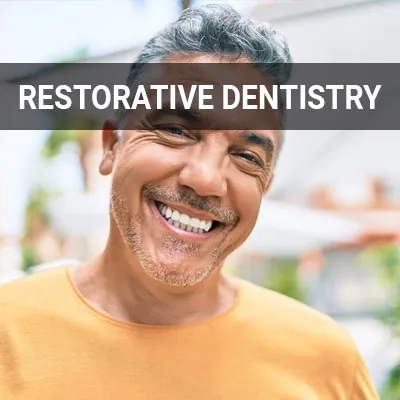Tooth Extraction Richmond, VA
A tooth extraction can be an essential part of maintaining one's dental health. Contrary to popular belief, wisdom teeth are not the only teeth that may need extraction. Tooth extraction can improve the overall functioning of the mouth.
Tooth extraction is available at Dental First in Richmond and the surrounding area. Many patients find that tooth extraction relieves them of unnecessary pain and restores their quality of life. Call us today at (804) 648-1305 to learn more and schedule an appointment.
Reasons for Tooth Extraction
Teeth may require extraction if they have suffered damage beyond repair, either through trauma or decay. Other factors that may necessitate tooth extraction include overcrowding, infection, and risk of infection. Typically, tooth extraction for overcrowding occurs when preparing the mouth for braces. Braces are meant to realign the teeth, meaning teeth must have adequate space to move around. A tooth extraction may also occur as part of the orthodontic process if there are teeth that do not have enough room to erupt through the gum.
Teeth may become infected when decay or damage extends to the pulp (the nerves and blood vessels at the center of the tooth). Root canal therapy is often enough to treat this problem. However, tooth infections may become severe enough to require extraction and prevent them from spreading any further. Patients who are immunocompromised may need to have teeth removed even if they are just at risk of infection.
” Teeth may require extraction if they have suffered damage beyond repair, either through trauma or decay.”
Preparing for Tooth Extraction
The first step to getting a tooth extraction is an initial consultation. During this time, patients should go over their medical history with their dentist, along with any other treatments they have planned. They should also tell their doctor about any medications, vitamins, supplements, and over-the-counter drugs they are taking. To ensure the patient's health, our team will take X-rays before the extraction and prescribe the patient antibiotics beforehand if necessary. Patients may be prescribed antibiotics if they have an infection, a weakened immune system, or specific medical conditions. The doctor may also prescribe antibiotics for patients who will undergo particularly long procedures.
Patients should wear loose, short-sleeved clothing on the day of the procedure. Additionally, they should refrain from eating or drinking for six to eight hours and refrain from smoking for 12 hours before their appointment. Patients should notify the office immediately if they have a cold, nausea, or vomiting, as this may necessitate rescheduling or use of a different form of anesthesia than initially planned. Those undergoing general anesthesia should make arrangements to have a trusted adult drive them to and from the procedure.
“To ensure the patient’s health, our team will take X-rays before the extraction and prescribe the patient antibiotics beforehand if necessary.”
What to Expect During Tooth Extraction
Before the procedure, the dentist will inject the patient with an anesthetic to numb the area from which they will be removing the tooth. As a result, patients will feel no pain throughout the extraction. Extraction of an impacted tooth will involve cutting away any gum and bone tissue covering the tooth. Since blood clots usually follow extraction, patients may have to bite down on a gauze pad packed to stop the bleeding. We may also place some sutures over the extraction site to assist in closing the gum edges.
“Before the procedure, the dentist will inject the patient with an anesthetic to numb the area from which they will be removing the tooth.”
Check out what others are saying about our dental services on Yelp: Tooth Extraction in Richmond, VA
Aftercare for Tooth Extractions
Patients should prioritize maintaining the blood clot that forms in the socket left behind by the extraction, as this will prevent complications like dry socket. Patients need to set aside the first 24 hours after the procedure for rest and change the gauze as needed. However, the gauze should remain in the mouth for a few hours, so there is adequate time for the blood clot to form. Patients should refrain from rinsing, using straws, spitting, blowing their nose, sneezing, or smoking as the clot heals. Any discomfort should be manageable through over-the-counter pain relievers and cold compresses. Patients should keep their head elevated in their sleep to avoid blood from pooling in the head.
“Patients need to set aside the first 24 hours after the procedure for rest and change the gauze as needed.”
What to Know Before Tooth Extractions
Tooth extraction is generally a safe procedure. Additionally, our team will not recommend a treatment unless the benefits outweigh the risks. However, it is still important to be aware of potential complications. Typically, after a tooth extraction, a blood clot will form in the socket left behind. However, when this blood clot does not form or is prematurely dislodged, then the bone inside the socket may be exposed. This condition is known as "dry socket."
Symptoms include severe and radiating pain, visible bone, bad breath, and foul taste. We can treat this condition easily by putting a new, sedative dressing over the socket for a few days to allow a new clot to form. Additionally, patients should watch out for bleeding that lasts longer than 12 hours, chest pain, cough, nausea, severe fever and chills, shortness of breath, swelling and redness at the surgical site, and vomiting. If any of these symptoms occur, call our office immediately.
“We will not recommend a treatment unless the benefits outweigh the risks.”
Questions Answered on This Page
Q. Do I need a tooth extraction?
Q. How will my doctor help me prepare for my tooth extraction?
Q. What happens during a tooth extraction procedure?
Q. What should I do after my tooth extraction?
Q. Are there any risks associated with tooth extractions?
People Also Ask
Frequently Asked Questions
Q. Will I be in pain after my tooth extraction?
A. Recovery and aftercare for tooth extractions vary on a case-by-case basis. The type of tooth removed may affect the healing process because certain teeth have deeper roots than others. In general, pain should steadily decrease about three days following the procedure.
Q. Do you always need to get wisdom teeth extracted?
A. No. Wisdom teeth extraction is not always necessary. They may remain intact if they are healthy, positioned correctly, and not causing any complications. Our team may be able to help you determine if extraction is necessary.
Q. What should I eat after my tooth extraction?
A. Refrain from eating hot foods and drinking alcoholic beverages for the first 24 hours following your procedure. Soft, cool foods are ideal during this time. Additionally, chew away from the extraction site.
Q. How long will it take for the area of my tooth extraction to heal?
A. Typically, the extraction site will take about two weeks to close up. However, bone and soft tissue may take three to six months to regrow.
Q. Will I need a follow-up appointment after my tooth extraction?
A. This depends on the severity of your procedure and the treatment plan agreed upon with our team. Contacting our office is the best way to discover what to expect.
Quality Dental Services Can Transform Your Smile
By visiting us as soon as possible, our team can help get you the professional treatment you need. Instead of waiting around and allowing the symptoms to get worse, we can provide you with treatment options.
Dental Terminology
Learn More Today
For many patients, tooth extraction can help reverse the damage done by trauma and decay. We at Dental First may be able to help. Call us today at 804-648-1305 to learn more and schedule an appointment.
Helpful Related Links
- American Dental Association (ADA). Glossary of Dental Clinical Terms. 2022
- American Academy of Cosmetic Dentistry® (AACD). Home Page. 2022
- WebMD. WebMD’s Oral Care Guide. 2022
About our business, license, and website security
- Dental First was established in 2013.
- We accept the following payment methods: American Express, Cash, Check, Discover, MasterCard, and Visa
- We serve patients from the following counties: Henrico County and Hanover County
- We serve patients from the following cities: Richmond, Ashland, Staunton, Glen Allen, North Chesterfield, Midlothin, Montrose, Bensley, Bon Air, East Highland Park, Mechanicsville, Laurel, Henrico, Tuckahoe, and Chester
- VA (License #401006978). View License Information and Specifics
- National Provider Identifier Database (1720140833). View NPI Registry Information
- Norton Safe Web. View Details
- Trend Micro Site Safety Center. View Details
Back to top of Tooth Extraction











